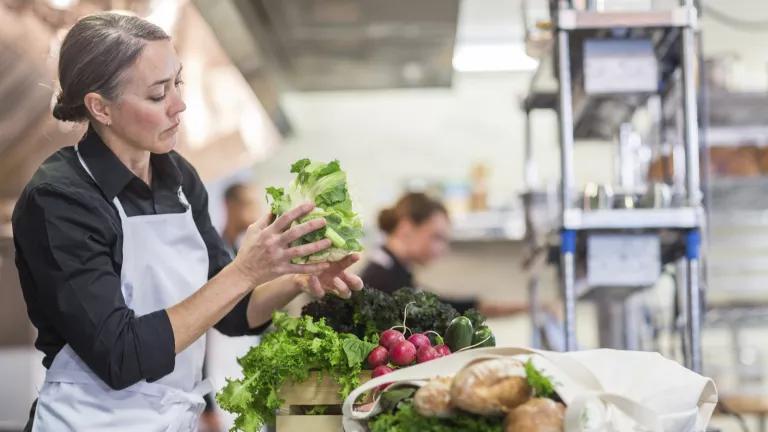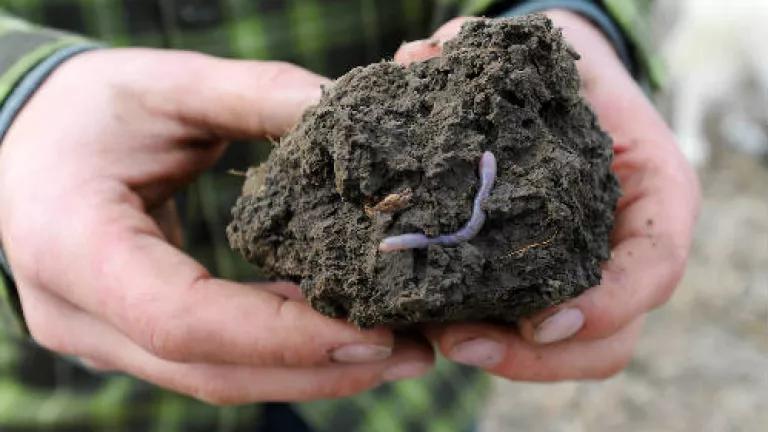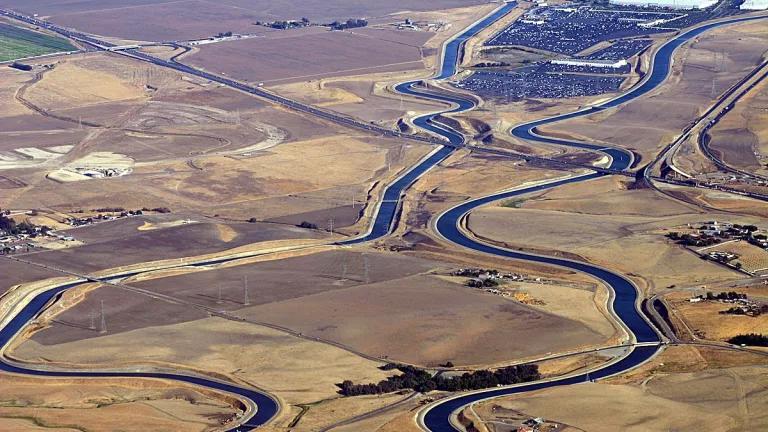
“Food is the single strongest lever to optimize human health and environmental sustainability on Earth.”
This striking statement comes from the recently released Lancet report by leading scientists from more than 16 countries.
New York City is no exception—food is a critical health, environmental, and social justice issue for this city—and an opportunity for New York to be a continued leader.
For these reasons, in September the City Council held hearing on numerous food related measures. NRDC was honored to testify with so many amazing advocates and groups working on the frontlines of food and agriculture in our city.
Instead of focusing on any one bill, our testimony focused on three broad themes that we believe are critical for the city’s overall food system goals.
- First, the importance of transparency and meaningful and diverse stakeholder engagement.
- Second, the central role of food in addressing the climate crisis.
- And third, the power of food to create wealth in low income communities.
Transparency and Stakeholder Engagement
The City should continue to engage with city agencies, non-profits, neighborhood organizations, and residents to ensure that policies are crafted in a way that works for New Yorkers. Frequent updates on policy efforts should be shared with the public and there should be numerous and varied opportunities for feedback.
In particular, the City should ensure that those who do not work on these issues in a professional capacity can be heard. Fixing our food system requires listening carefully to our friends and neighbors who are most impacted by the current, broken industrial-based food system.
Climate Opportunity
Food should be more central to the City’s ambitious and urgent climate goals. Worldwide, food and agriculture, broadly defined, is responsible for as much as 25% or more of greenhouse gas emissions. What we choose to eat, and how it is grown, distributed, and disposed of, has huge climate implications.
There are key strategies that New York and other cities can use—and in some cases are already deploying—to address climate change through food. For example, the city could buy more plant-based and less climate-intensive foods. Amazingly, beans and lentils are roughly 34 times less carbon intensive than beef. The city could also do more to reduce food waste: roughly 40% of food in this country is wasted—and globally food waste is responsible for 8% of total greenhouse gas emissions. More generally, how the city protects its “foodshed”—both farmland within and outside the city—can play a big role in addressing climate change. Indeed, as a recent United Nations Intergovernmental Panel on Climate Change (IPCC) report underscores, our land and soil is an important source and sink for greenhouse gas.
To be sure, in each of these areas the city has made important advances—from Meatless Mondays to the organics collection effort. But it is time to double down on this work. Indeed, the Council Hearing was just two days before the youth-led climate strike took place here in New York and in cities around the globe to demand urgent climate action. We need to take all possible steps to address this crisis—and food will need to play a greater role in our collective climate battle plan moving forward.
Building Wealth Through Food
The city should help harness the power of food to reinvest, and build wealth, in low income communities and communities of color. So many of the public health challenges we face today are the result of longstanding structural racism and disinvestment in communities of color.
To solve these issues, we must work to address the underlying causes—and not just the symptoms. The city should engage with residents as not just consumers of food, but owners and entrepreneurs in the food system. Whether as farmers, small food businesses, or city contractors, the city should help disadvantaged New Yorkers chart a path to build greater wealth and keep more money in their communities.
NRDC looks forward to working with the Council and the many amazing advocates across the city to move closer to a healthy, sustainable and just food system for all New Yorkers.






